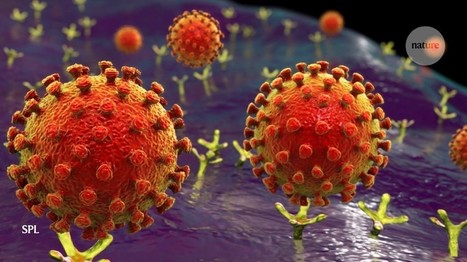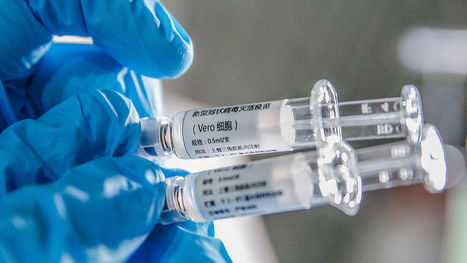Primate centers band together for study rejected by Operation Warp Speed. Primate researchers in the United States have banded together in a push for an ambitious monkey study that would do head-to-head comparisons of the leading COVID-19 vaccine candidates. Although 10 candidates are already undergoing large-scale tests in people, proponents of the monkey plan say those clinical trials may not deliver the comprehensive data needed to choose the safest and most effective vaccines. The comparison trial in monkeys, in contrast, could shed light in a matter of weeks on how the candidates stack up on measures including potential side effects, the strength of immune responses they trigger, and how well they protect against infection and disease. “We should take a cold, hard look at all of the data and ask ourselves, ‘What appears to work best?’” says Nancy Haigwood, who directs the Oregon National Primate Research Center and is a key advocate for the comparative monkey study.
The proposed monkey vaccine comparison faces hurdles: It would add to the pressure on the dwindling U.S. supply of research monkeys, potentially delaying research on other diseases, and it does not yet have funding. Haigwood says she expected the U.S. government would gladly support the effort, which would cost an estimated $10 million, compared with the $10 billion the Trump administration’s Operation Warp Speed has already devoted to a COVID-19 vaccine push. But facing a lack of interest by current Warp Speed officials, Haigwood and colleagues at the six other national primate research centers are now turning to the National Institutes of Health (NIH) for support. Most developers of the vaccine candidates in efficacy trials have already published how well each works in monkeys against a “challenge” with SARS-CoV-2—a deliberate exposure to the pandemic coronavirus that causes COVID-19. But the details of how the experiments were conducted and the ways the results were analyzed differ so profoundly that immunologist John Moore of Weill Cornell Medicine says he can’t make sense of how the candidates compare. “It’s comparing apples to oranges and bananas,” says Moore, who has co-authored a review, on preprint.org, that compares the various monkey studies.
The human vaccine trials, for their part, are likely to yield only preliminary signals of efficacy over the next few months, not clear-cut evidence that one or more is safe and protects people. “We’re going to get data dribbling in from clinical trials,” says Haigwood, a veteran AIDS vaccine researcher. The data from the many human trials, some in multiple countries, will also be tough to compare. Jay Rappaport, who heads the Tulane National Primate Research Center, notes the trial populations differ and are infected by different variants of SARS-CoV-2. In addition, the human trials—as with the monkey experiments—often use different assays to measure immune responses. “There’s so much variation in the primate studies, but there’s even more variation in the human studies,” Rappaport says. In contrast to the human trials that must wait for enough participants to become naturally infected to gauge a vaccine’s worth, Haigwood says, monkey challenge studies could deliver definitive results quickly. She says the monkey comparison could start as soon as this month and would require only about 6 weeks to vaccinate animals, challenge them, and assess their immune responses and levels of protection...



 Your new post is loading...
Your new post is loading...












